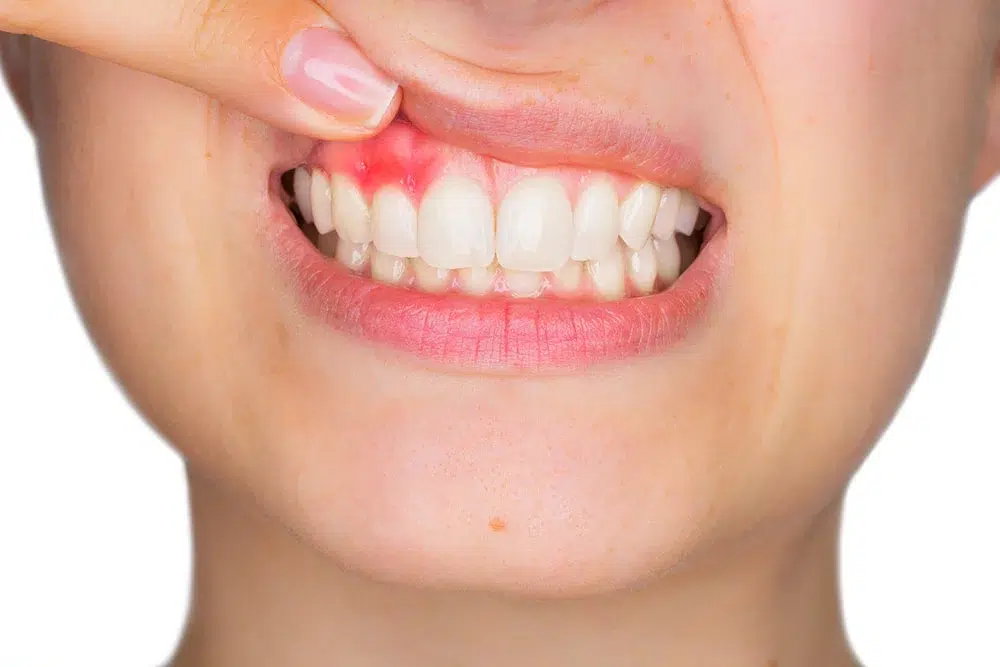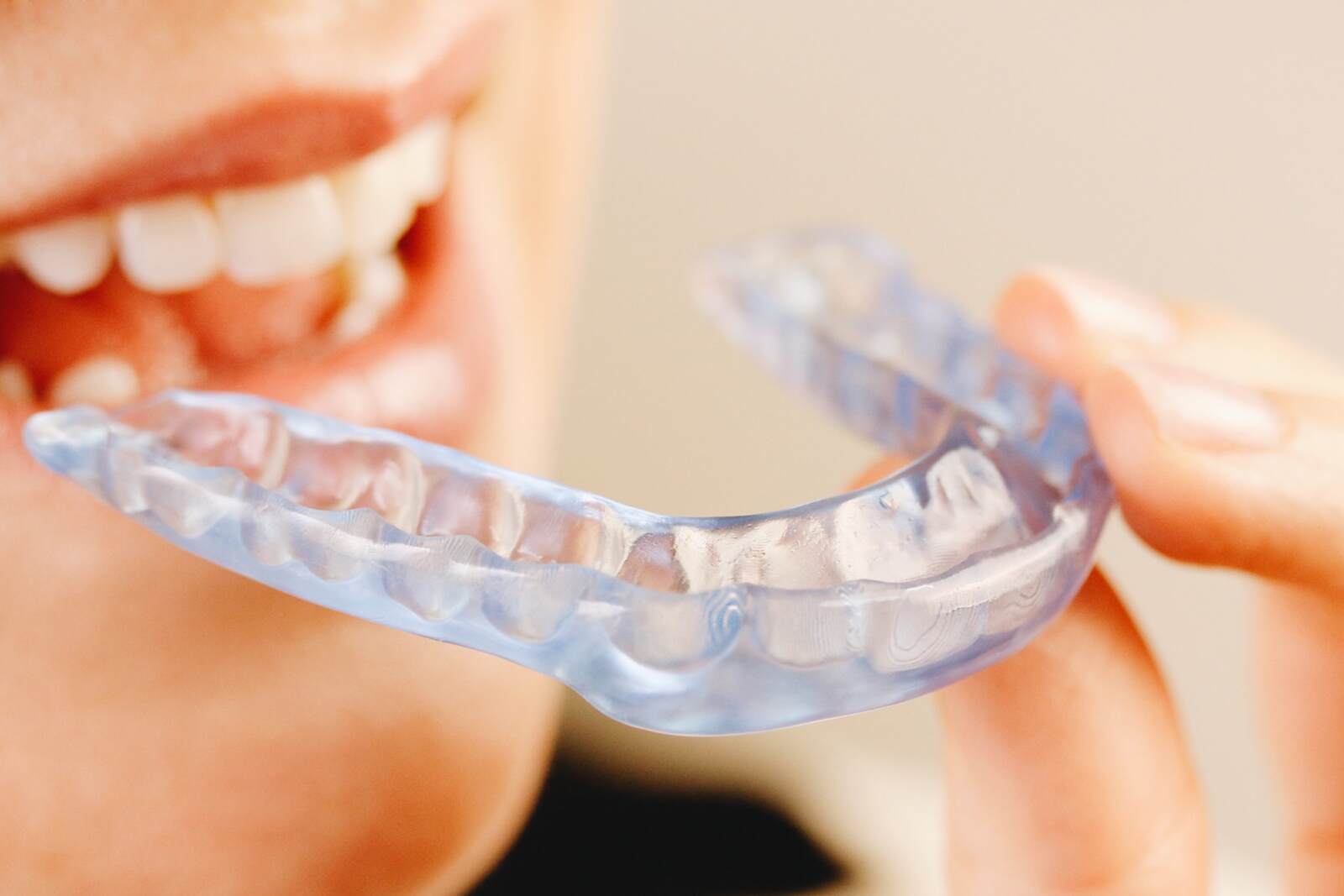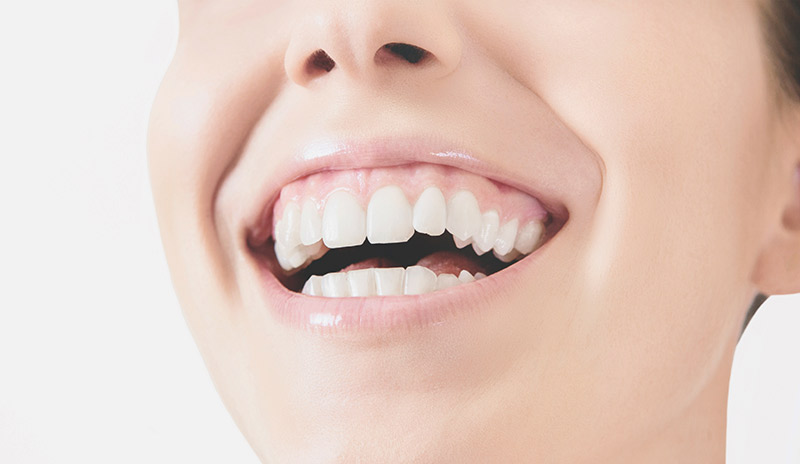If you’ve ever woken up with jaw pain, unexplained headaches or noticed increased sensitivity in your teeth, you could be suffering from bruxism, a condition that affects many people without them realizing it.
Bruxism is the involuntary habit of grinding or clenching the teeth, which can cause severe wear on the teeth, muscle pain and even affect the jaw joint. Although in many cases it occurs during sleep, it can also manifest itself during the day, especially in times of stress.
In this article, we explain what causes it, how to detect it and what you can do to prevent it from affecting your oral health.
Why does bruxism occur?
There are multiple factors that can trigger this condition. Some of the most common reasons include:
1. Stress and anxiety
The fast pace of life and daily worries can generate muscle tension, which causes many people to unconsciously clench their teeth. This is one of the most frequent causes and usually manifests itself at times of increased emotional pressure.
2. Sleep disorders
Nighttime bruxism is linked to problems such as insomnia or sleep apnea. If you don’t get a good night’s rest, the chances of grinding your teeth increase significantly.
Dental malocclusions
When the teeth do not fit together properly, the jaw tries to adjust in a forced manner, which can lead to repetitive episodes of teeth grinding or clenching. In these cases, an invisible orthodontic invisible orthodontics can be an effective solution to correct the bite and avoid this problem.
4. Genetic factors
If you have a family history of bruxism, you may be predisposed to develop this involuntary habit. Although the genetic influence is not yet fully understood, a higher incidence has been identified in people with family members who suffer from this problem.
5. Stimulant use
Substances such as coffee, alcohol or some medications can increase jaw muscle activity and promote uncontrolled teeth grinding.
How do you know if you have bruxism?
Since many people are not aware that they suffer from it, there are some symptoms that can alert you:
✔ Jaw pain upon awakening.
✔ Tension headaches, especially in the morning.
✔ Teeth that are worn, fractured, or more sensitive than normal.
✔ Nighttime grinding noise, detected by someone sleeping near you.
If you present any of these signs, the ideal is to visit a dentist to obtain an accurate diagnosis and avoid major problems.
Consequences if left untreated
Bruxism not only causes temporary discomfort, but can lead to more serious oral health problems:
1. Dental wear
Constant grinding of the teeth erodes the enamel, which may cause tooth sensitivitytooth sensitivity, tooth decay or even tooth loss.
2. Problems in the temporomandibular joint (TMJ)
Excessive pressure on the jaw can lead to TMJ disorders, causing pain, stiffness and difficulty in opening or closing the mouth correctly.
3. Frequent headaches
The muscular tension derived from bruxism can extend to the head and cause constant headaches, affecting the quality of life.
4. Misalignment of teeth
If the habit persists for a long time, the teeth may shift, which may require orthodontic treatment to restore the proper bite.
How to treat bruxism?
Fortunately, there are several options to minimize the effects and protect dental health:
1. Use of dental splints
One of the most effective treatments is the use of customized night splints, which prevent tooth wear and reduce pressure on the jaw while you sleep.
2. Stress management
As bruxism is closely related to anxiety, incorporating relaxation techniques , meditation or yoga can help reduce episodes.
3. Dental correction with orthodontics
If the origin of the problem is a dental malocclusion, the use of invisible orthodontics can correct the alignment of the teeth and prevent the jaw from making unnecessary efforts.
4. Changes in daily habits
Reducing caffeine, alcohol and tobacco consumption, as well as avoiding hard or sticky foods before bedtime, can help relax the jaw and reduce nighttime teeth grinding.
5. Complementary therapies and medical treatment
In more severe cases, specialists may recommend physical therapy, jaw massage or relaxing medications to relieve jaw tension and reduce symptoms.
Conclusion
Bruxism is a common problem that can affect dental health and lead to long-term complications if not treated properly. If you have noticed symptoms such as jaw pain, tooth wear or frequent headaches, it is best to see a specialist for proper treatment.
Protecting your smile is critical. With early diagnosis and the right solutions, you can avoid the consequences of teeth grinding and maintain optimal oral health.
Artículos relacionados
Comprehensive oral health
Aesthetic dentistry, Comprehensive oral health





